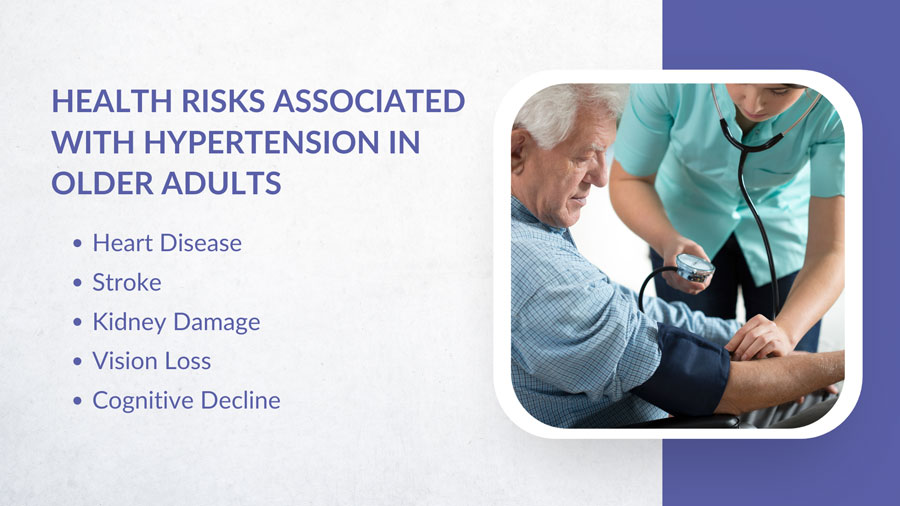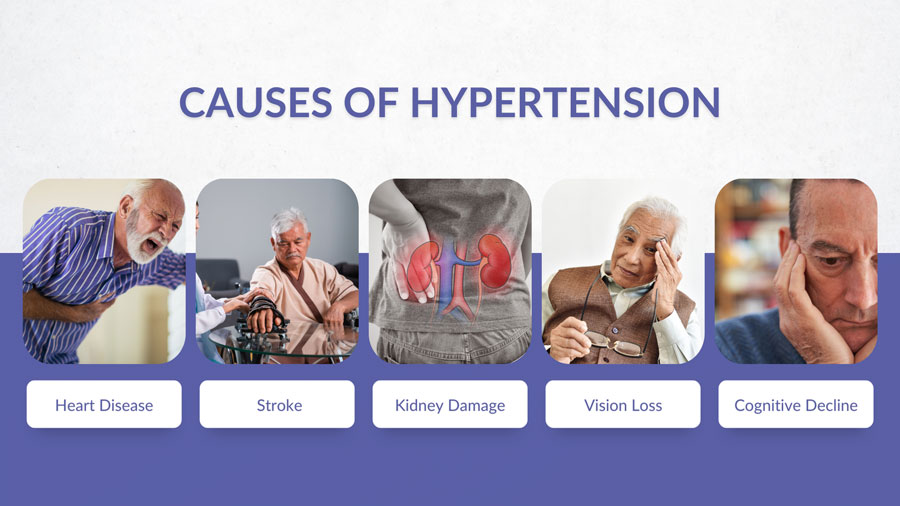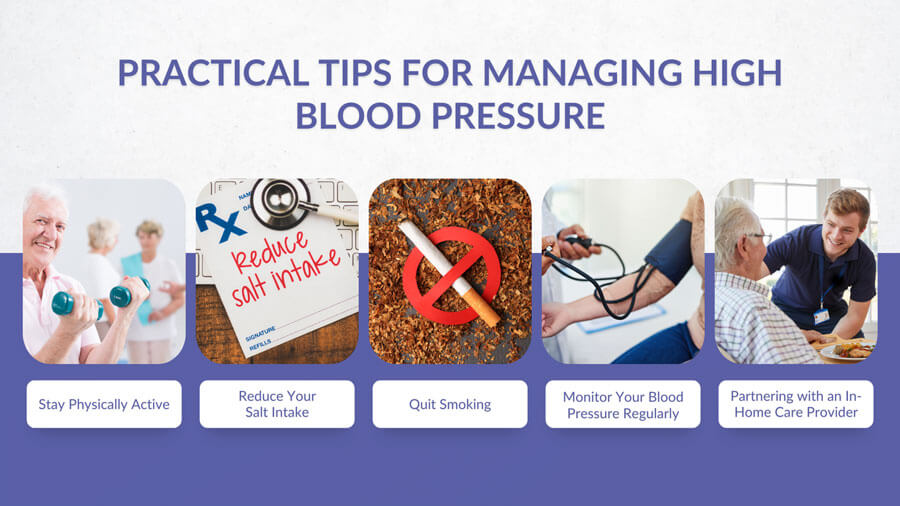Heart Health: Tips for Managing Hypertension

As we age, maintaining heart health becomes increasingly crucial. One of the most significant threats to heart health is high blood pressure or hypertension. Hypertension occurs when the blood exerts excessive force against the blood vessel walls, leading to potential damage over time. This condition can result in severe health complications, including heart attacks, strokes, heart disease, kidney problems, and vision loss.
Table of Contents
The Silent Threat: Recognizing Hypertension in Seniors
High blood pressure is often called the “silent killer” because it typically presents no noticeable symptoms. This makes regular blood pressure checks essential, especially for seniors. A consistent reading of 130/80 or higher indicates hypertension. While medication can help manage this condition, lifestyle changes are equally critical in maintaining optimal blood pressure levels.
Health Risks Associated with Hypertension in Older Adults

Understanding the dangers of hypertension can highlight the importance of proactive management. Here are some of the key risks associated with high blood pressure in seniors:
Heart Disease
Hypertension can cause the arteries to harden and thicken, leading to heart disease or heart failure. This increased workload can enlarge the heart, which may struggle to supply the body with sufficient blood, significantly impacting overall health.
Stroke
High blood pressure can lead to the bursting or blockage of blood vessels in the brain, resulting in a stroke. This can cause long-term disability or even death, making it imperative to manage blood pressure effectively.
Kidney Damage
The kidneys are responsible for filtering waste from the blood. High blood pressure can damage the blood vessels within the kidneys, impairing their function and potentially leading to chronic kidney disease or kidney failure.
Vision Loss
Hypertension can also damage the blood vessels in the eyes, leading to vision problems or even blindness. This condition, known as hypertensive retinopathy, often progresses without warning signs.
Cognitive Decline
There is a strong correlation between high blood pressure and cognitive decline, including the development of dementia. Managing hypertension can help preserve cognitive function and improve quality of life.
Causes of Hypertension

Understanding the dangers of hypertension can highlight the importance of proactive management. Here are some of the key risks associated with high blood pressure in seniors:
Heart Disease
Hypertension can cause the arteries to harden and thicken, leading to heart disease or heart failure. This increased workload can enlarge the heart, which may struggle to supply the body with sufficient blood, significantly impacting overall health.
Stroke
High blood pressure can lead to the bursting or blockage of blood vessels in the brain, resulting in a stroke. This can cause long-term disability or even death, making it imperative to manage blood pressure effectively.
Kidney Damage
The kidneys are responsible for filtering waste from the blood. High blood pressure can damage the blood vessels within the kidneys, impairing their function and potentially leading to chronic kidney disease or kidney failure.
Vision Loss
Hypertension can also damage the blood vessels in the eyes, leading to vision problems or even blindness. This condition, known as hypertensive retinopathy, often progresses without warning signs.
Cognitive Decline
There is a strong correlation between high blood pressure and cognitive decline, including the development of dementia. Managing hypertension can help preserve cognitive function and improve quality of life.
Monitoring Blood Pressure
Regularly monitoring blood pressure is vital. Keeping track of readings and noting activities during measurements can provide valuable insights. This information can help determine if lifestyle changes are effective and guide adjustments.
Practical Tips for Managing High Blood Pressure

Incorporating the following lifestyle changes can significantly improve heart health and manage hypertension:
Stay Physically Active
Aim for at least 30 minutes of moderate activity five days a week. Activities like walking, jogging, biking, swimming, dancing, or joining a senior fitness program are excellent options. Combining cardio and strength training helps keep the body fit and supports weight management, which is crucial for reducing high blood pressure.
Reduce Salt Intake
Excessive salt intake is a significant contributor to high blood pressure. Aim to consume no more than 1,500 mg of sodium per day. Reading food labels and opting for fresh or flash-frozen fruits and vegetables, lean meats, and whole grains can help reduce sodium intake. Use herbs and spices for flavor instead of salt.
Quit Smoking
Quitting smoking can be challenging but immensely beneficial. Nicotine constricts blood vessels, reducing blood flow and increasing the heart’s workload. This, combined with high blood pressure, significantly raises the risk of stroke or heart attack.
Monitor Blood Pressure Regularly
Regularly check blood pressure and track activities during measurements. This helps identify trends and assess the effectiveness of lifestyle changes. Share this information with your doctor for better management.
Partnering with an In-Home Care Provider
An in-home care provider can be invaluable in managing heart health. They can remind you to take medication, assist with meal preparation, encourage physical activity, and provide companionship and support. Contact Always Best Care of Shalimar at (850) 662-6530 to learn more and schedule your free consultation.





